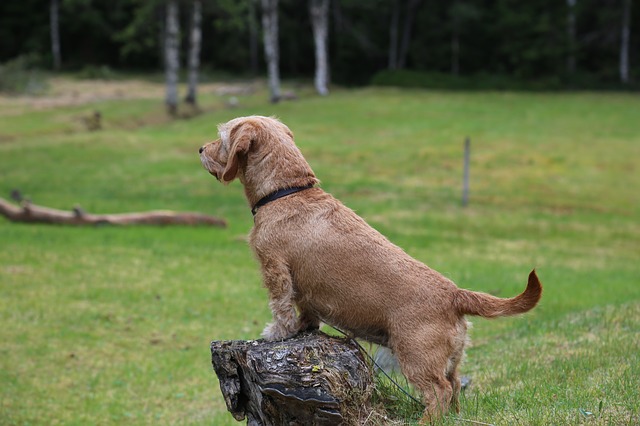
Your dog has a pelvic floor, same as you do. These are the muscles between his anus and genitals that support the organs in his lower body. A rupture in these muscles can lead to a perineal hernia – this is when the organs protrude through the rupture, appearing as a swollen area between his tail and scrotum. This happens most often in older dogs who weren’t neutered.
A perineal hernia can affect your dog’s ability to “go,” and may even be life-threatening if his bladder or intestines pass through the rupture by causing a strangulation of his bowels and a loss of blood supply.
Symptoms of Perineal Hernia in Dogs
You’ll likely see the swelling near your dog’s anus, but there will be other symptoms caused by it that include: the swelling include:
- Straining to urinate
- Difficulty with bowel movements
- Constipation
- Change in tail carriage
Other symptoms may appear, depending on which organs pass through the rupture. You may notice:
- Abdominal pain
- Lethargy
- Depression
Causes of Perineal Hernia in Dogs
Hernias can be caused by a few different things, including trauma, tumors, age, or birth defects. There’s no breed disposition, but because most cases appear in older male dogs who were never neutered, some believe that male hormones or prostate enlargement can weaken the pelvic floor.
Diagnosis of Perineal Hernia in Dogs
Your vet may be able to identify a perineal hernia by feeling the swollen area, but they’ll ask you for a history and give a through exam to make sure they’re treating a hernia, and not a tumor. Blood work and urinalysis may be used to develop a health profile, identify any other diseases, and determine how your dog will take treatment. An x-ray or ultrasound can help define the hernia, and determine which organ is causing it. Your vet might recommend a prostate gland biopsy or inspection of your dogs testicles. If they find that your dog’s prostate is enlarged, they might call for additional tests to find out the underlying cause.
Treatment of Perineal Hernia in Dogs
How your vet treats the hernia will depend on how serious it has become. Surgical repair and neutering are usually done, though there are other options.
Medical Management
In minor cases, medical treatment can be used to help relieve the strain your dog may need to poop. Stool softeners, enemas, and a high fiber diet can make it easier for him to go, and a catheter can be used to decompress his bladder. This doesn’t cure the hernia or address the rupture, though, and your dog will still be at risk of having his bladder or colon trapped in the rupture.
Surgical Treatment
Surgery is usually recommended for a perineal hernia. The organs will be put back where they belong and your dog’s pelvic floor will be repaired. His colon and bladder might be sutured to his abdominal wall to prevent the hernia from showing up again. His diaphragm can be reinforced with a surgical mesh or nearby muscle flap to close the rupture entirely. Neutering is recommended to minimize hormones and reduce the size of the prostate, which will decrease the chances of another perineal hernia.
Recovery of Perineal Hernia in Dogs
Antibiotics are usually prescribed after a surgery to prevent issues that could arise from contamination at the site of the surgery. Your vet might also prescribe painkillers to help your dog through recovery, and may suggest that you modify your dog’s diet and use stool softeners while he’s healing up. It’ll give him less reason to strain when he goes, reducing pain and stress on the muscles.
The area will need to be kept clean and dry, and his physical activity should be limited. An e-collar can keep him from picking at the area. Your vet may request follow-ups to make sure your dog his healing properly, but the probability that his hernia will return should be low.
